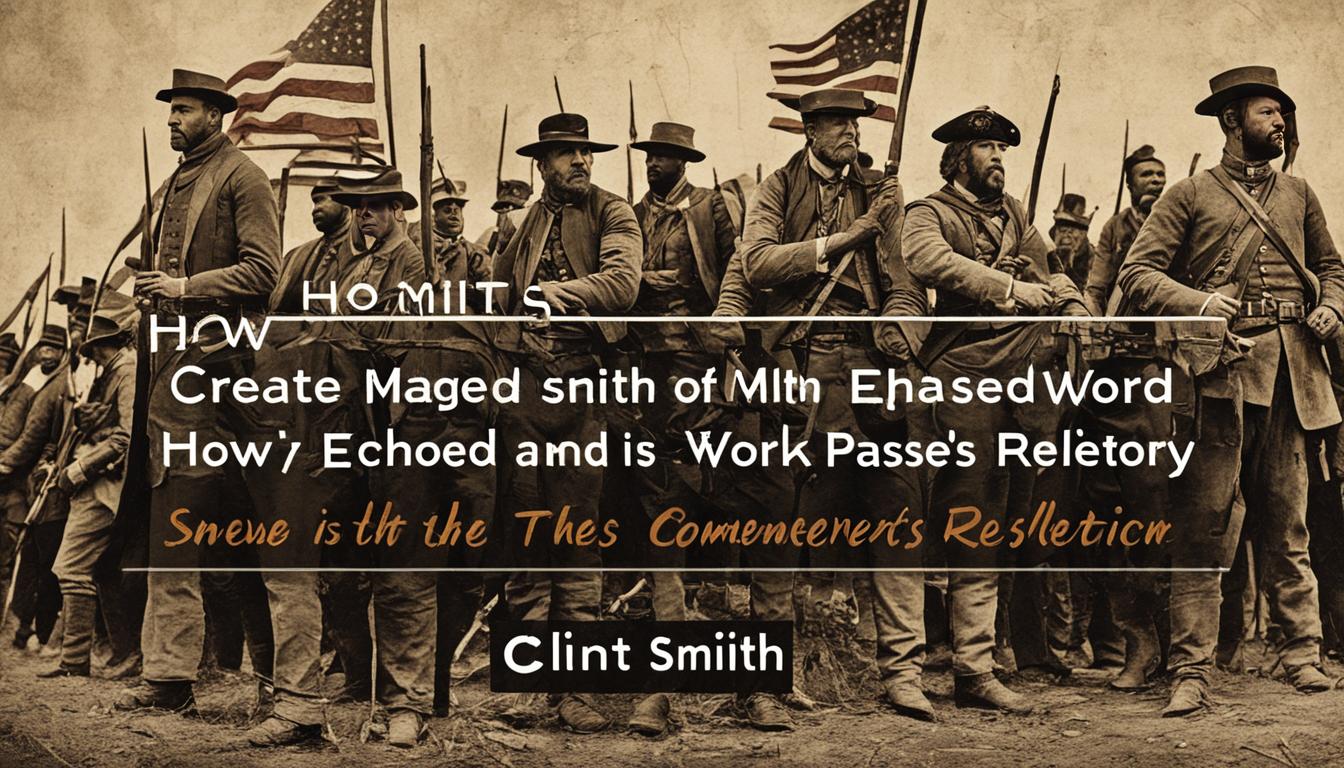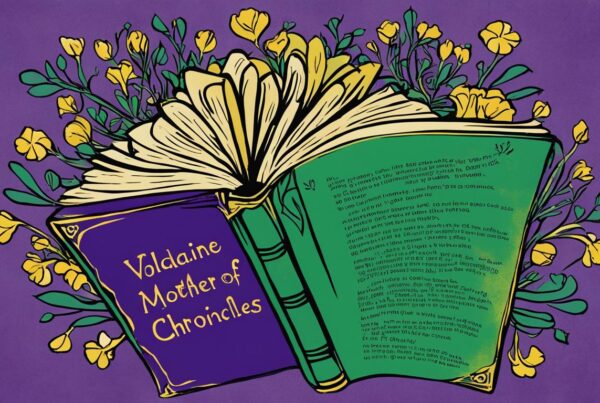In this audiobook review, we delve into Clint Smith’s “How the Word Is Passed,” a profound exploration of America’s racial history. Through visiting various historical locations and engaging personal reflections and interviews, Smith presents an engaging narration of America’s troubled past. Smith’s work is a powerful indictment of the consequences of racism, segregation, and brutalization. Image source:
Introduction to “How the Word Is Passed”
Clint Smith’s audiobook “How the Word Is Passed” is a ground-breaking exploration of America’s racial history that deserves attention. Through visiting several historical locations scattered all over the United States, Smith reflects on the dark past and reveals the systematic oppression of black Americans that lasted for centuries. His audiobook combines extensive research, personal reflections, and interviews of various individuals to provide a holistic view of America’s racial past and present.
If you’re looking for an informative and engaging audiobook that offers a deep understanding of America’s racial history, “How the Word Is Passed” is the right choice. In the following sections, we will discuss the relevance and significance of Smith’s work, showcasing how it sheds light on the country’s past and affects its future.
Overview and Themes
In “How the Word Is Passed,” Clint Smith explores some of America’s most iconic landmarks and examines their historical significance in the nation’s racial history. Through this exploration, Smith delves into themes of memory, erasure, and whitewashing of history.
One of the major themes of the book is the examination of how historical narratives are shaped and passed down through generations, perpetuating myths and falsehoods about America’s past. Smith highlights the importance of questioning these narratives and re-examining history through a critical lens.
Another theme that emerges in the book is the idea of collective memory and how that shapes our understanding of the present. Smith argues that by confronting America’s past and reckoning with the ways in which it has shaped our present, we can begin to move towards a more equitable future.
Through his examination of historical landmarks such as Monticello, the Whitney Plantation, and Angola Prison, Smith highlights the racial disparities that have persisted in America’s history and continue to shape our society today. He also emphasizes the importance of acknowledging the contributions of Black Americans to America’s past and present, highlighting their often-overlooked stories and voices.
“We have to have a more honest account of what our past is and how that past shapes our present, and how we can learn from that past so that we can move towards a more just future.”
Writing Style and Narration
Clint Smith’s writing style and narration in “How the Word Is Passed” are truly captivating. His ability to seamlessly blend history, personal reflection, and interviews makes for an engaging and informative audiobook experience. Smith’s writing style is clean and concise, with a focus on storytelling that draws the reader in, making them feel as though they are part of the journey with him. The way he narrates his own work breathes life into the words, giving the listener a deeper connection to the material.
Smith’s vivid descriptions transport the listener to the various historical locations, making them feel as if they are walking alongside him as he uncovers the hidden truths of America’s racial history. His storytelling is masterful, creating suspenseful moments that keep the listener engaged and eager to learn more. Smith’s narration is dynamic, utilizing his voice to convey the emotions and passions that come with exploring difficult subject matter.
It is this dynamic combination of writing style and narration that makes “How the Word Is Passed” a must-listen for anyone interested in understanding America’s racial history. Smith’s ability to educate and inform, while also telling a compelling story, is a testament to his immense talent as a writer and narrator.
Historical Locations Explored
In “How the Word Is Passed,” Clint Smith takes readers on a fascinating exploration of various historical locations in the United States. Each location has a distinct history related to America’s racial past. From Monticello, the home of Thomas Jefferson, to Angola Prison in Louisiana, Smith uncovers the complex stories hidden within each space and their significance to the broader narrative of American history. The audiobook artfully balances historical research with personal reflection, creating a moving account of America’s racial history.
One location Smith visits is the Whitney Plantation in Louisiana, which is unique in that it is dedicated solely to the history of enslaved people in the United States. Smith describes his visit to the plantation in vivid detail, providing a haunting glimpse into the lives of those who lived and worked there. Another location is the Edmund Pettus Bridge in Selma, Alabama, where Smith walks in the footsteps of civil rights activists who were brutally attacked by police during the 1965 Selma to Montgomery marches. These are just a few examples of the historical locations and fascinating stories explored in “How the Word Is Passed.”
Through his visit to each of these historical locations, Smith brings to light the harsh realities of racial history in the United States. While some locations are well known, others are lesser-known but equally important in understanding the country’s racial past. By exploring these sites, Smith encourages readers to examine the uncomfortable truths about America’s history, ultimately promoting important discussions on how to create a better future for all.
Personal Reflections and Interviews
Clint Smith’s “How the Word Is Passed” provides powerful personal reflections and interviews that shed light on different perspectives of America’s racial history.
Smith highlights the voices of descendants of enslaved people, educators, historians, and activists who share their experiences and memories, providing powerful insights into the ongoing impact of slavery and subsequent events on their lives and communities. The diverse perspectives presented in the audiobook offer a multifaceted examination of America’s racial history.
“I don’t want to be the kind of historian or speaker or writer who’s just using these stories to say ‘look how far we’ve come.’ I want to use these stories to say look at how far we have to go, because that’s what really matters.” – Clint Smith
Smith’s audiobook also includes interviews with historians and other experts, providing a more in-depth understanding of the history and significance of the locations he visits. These interviews contextualize the significance of the sites and events that Smith explores, providing a deeper understanding of their impact on America’s racial history.

The personal reflections and interviews featured in “How the Word Is Passed” offer a unique perspective on America’s racial history, providing a nuanced and powerful examination of this complex topic.
Impact and Relevance Today
Clint Smith’s “How the Word Is Passed” is a thought-provoking exploration of America’s racial history that remains highly relevant today. Its impact lies in its ability to spark conversations about race and history, and to provide insights into how the past shapes our present.
Smith’s examination of various historical locations and his personal reflections and interviews reveal the ongoing impact of racial history on individuals and communities. For example, the chapter on Angola Prison highlights the systemic racism inherent in the criminal justice system, while the examination of Monticello exposes the erasure of Black contributions to American history.
The audiobook’s relevance lies in its timely release amid the current reckoning with racial injustice in America. As discussions surrounding race and systemic racism continue, “How the Word Is Passed” provides a nuanced and comprehensive exploration of America’s racial history that is essential reading for those seeking to gain a deeper understanding of the profound impact of racism.
Critical Reception and Awards
Clint Smith’s “How the Word Is Passed” has received critical acclaim for its powerful exploration of America’s racial history. The audiobook has been praised for its insightful examination of historical locations and personal reflections that shed light on different perspectives of this complex issue.
In addition to its critical success, “How the Word Is Passed” has also received numerous awards, including:
| Award | Category | Year |
|---|---|---|
| National Book Critics Circle Award | Nonfiction | 2021 |
| Goodreads Choice Award | Nonfiction | 2021 |
| Andrew Carnegie Medal for Excellence in Nonfiction | Nonfiction | 2022 |
These awards are a testament to the valuable contribution Clint Smith’s “How the Word Is Passed” has made in helping us understand America’s racial history.
Comparisons and Similar Works
Clint Smith’s “How the Word Is Passed” is a profound exploration of America’s racial history, but it is by no means the only work that delves into this important topic. Other notable works include:
| Title | Author | Year Published |
|---|---|---|
| Stamped from the Beginning | Ibram X. Kendi | 2016 |
| The Warmth of Other Suns | Isabel Wilkerson | 2010 |
| Becoming | Michelle Obama | 2018 |
While each of these works addresses America’s racial history in a unique way, Clint Smith’s “How the Word Is Passed” stands out for its in-depth exploration of specific historical locations and the personal reflections and interviews that provide a multi-layered perspective on the issue.
Recommendations and Conclusion
After a detailed analysis of Clint Smith’s “How the Word Is Passed,” we highly recommend this audiobook to anyone interested in gaining a deep understanding of America’s racial history. The audiobook is insightful, thought-provoking, and engaging, and provides a unique perspective on a complex issue that has shaped the country in countless ways.
The narration and writing style employed by Clint Smith effectively convey the complex historical themes and provide vivid descriptions of the historical locations he visits. The personal reflections and interviews of people who have lived through these events offer unique and diverse perspectives on America’s racial history.
Through this audiobook, we have gained a new appreciation for the complexity of America’s racial history and the impact it has on contemporary issues. It is a must-listen for anyone looking to gain a deeper understanding of this controversial and essential topic.
In conclusion, Clint Smith’s “How the Word Is Passed” is a valuable contribution to the examination of America’s racial history. It offers a nuanced exploration of the topic and a personal connection to the historical events. We highly recommend this audiobook and believe that it has the power to help people gain a better understanding of the complex issues surrounding race in America.
Conclusion
In conclusion, Clint Smith’s audiobook, “How the Word Is Passed,” is a remarkable and necessary addition to America’s racial history discourse. Smith’s exploration of historical locations, personal reflections, and interviews provides a comprehensive examination of America’s complex past. His writing style and narration make this audiobook engaging and accessible to all listeners.
The impact and relevance of “How the Word Is Passed” cannot be overstated, particularly in today’s social and political climate. Smith’s audiobook encourages listeners to reflect on their own complicity in systemic racism and to take action towards creating a more just and equitable society.
As our review has shown, Clint Smith’s “How the Word Is Passed” is a must-listen for anyone seeking to deepen their understanding of America’s racial history. We highly recommend this audiobook to all listeners and believe it will continue to resonate with and challenge audiences for years to come.



